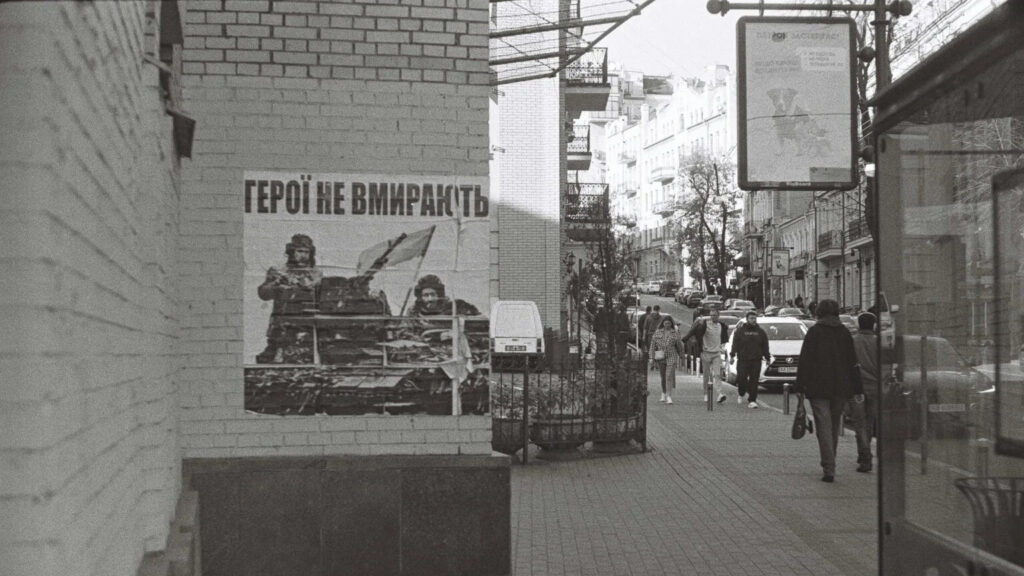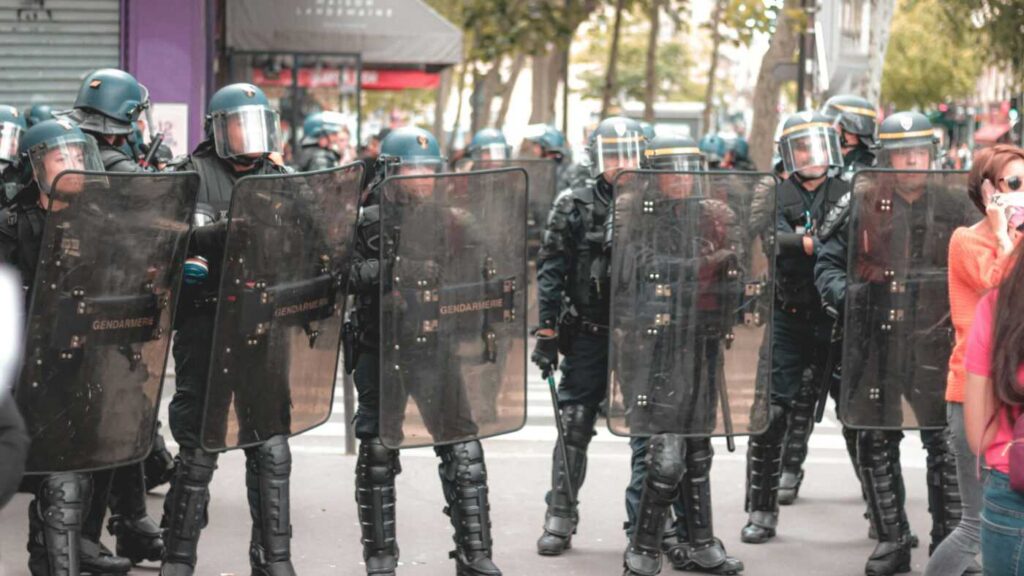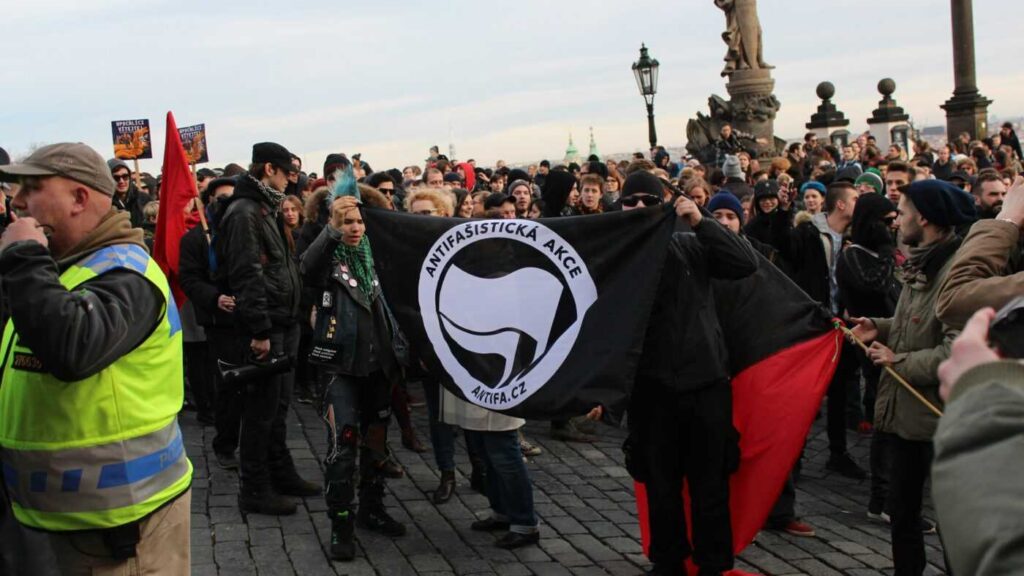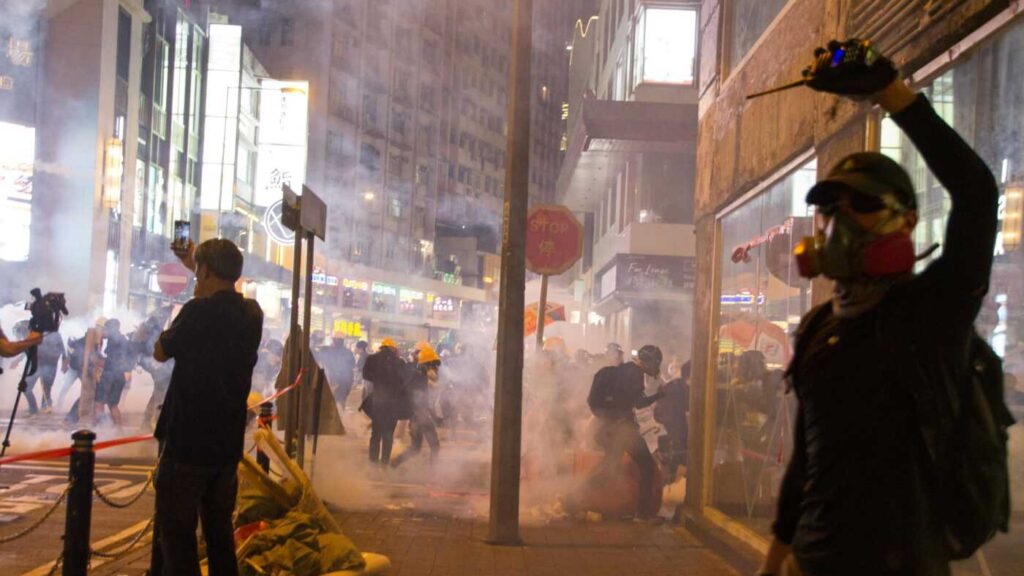Science
The Monk Who Saw the Future: Did an 11th-Century Benedictine Beat Astronomers?
17 February 2026

Traditional warfare is a last resort. Weaker nations understandably shy away from it, but even for an aggressor, it is a solution best avoided. Is it possible, however, to take over other countries without a single shot being fired? Indeed, it is – sometimes with the open invitation of the citizens of the targeted nations. Although this requires time, patience pays off as the aggressor inches closer to their goal.
“My friends, you are in big trouble. Whether you believe it or not, you are at war and could soon lose everything,” warned Yuri Bezmenov, a former KGB officer, as he cautioned Americans about the ideological assault from the Soviet Union. He issued this warning 40 years ago, yet the subversion tactics revealed by the repentant agent remain relevant, perhaps even more so today than back then.
Ideological subversion was not unique to the USSR, nor can it be attributed solely to Russia today. However, in the case of these states, such mole-like work has achieved particularly spectacular successes.
In his book Love Letter to America, published in 1984 in the USA, Bezmenov admitted to being part of a long-term ideological and disinformation campaign designed to erode the West from within.
According to him, the event that prompted his change of views and employer was the “fraternal assistance” provided by Warsaw Pact countries to Czechoslovakia in 1968. One must admit that the euphemistic description of a brutal invasion of a sovereign (at least officially) state carried a hefty payload of disinformation. The invasion of Czechoslovakia was as “brotherly” as Cain’s final encounter with Abel.
In 1970, Bezmenov fled from India, where he was a distinguished correspondent for “Novosti,” to Canada, and from there to the United States. In the U.S., he pursued various professions but ultimately focused on his expertise: exposing Soviet ideological subversion.

The idea of conquering another state without firing a shot was not an invention of recent decades or even centuries. Bezmenov noted that the concept itself is rooted in the strategic thinking of the war genius, Chinese philosopher Sun Tzu. It was he who, 500 years BCE, described the idea of conquest based solely on ideological and cultural revolt, using what we would now call propaganda and disinformation in the enemy state.
Both Imperial Russia and the Soviet Union had mastered these latter techniques to perfection. As early as the mid-19th century, French writer and traveler Marquis Astolphe de Custine wrote: “In Russia, everything is a sham, and the Tsar’s magnanimous hospitality and the assembly of his serfs and those belonging to his courtiers in the palace is just one element of this farce.” The Marquis noted, “Russian despotism doesn’t just disregard ideas; it rewrites facts, wages war on evidence, and ultimately prevails.”
This is a crucial observation considering the “magic” that captivated many writers and statesmen visiting the Soviet Union. Lenin is credited with calling this type of enthusiast “useful idiots,” yet they played a significant role in the Kremlin’s propaganda and disinformation efforts.
Some, like the author of 1984, George Orwell, turned away from their fascination with the achievements of the October Revolution after encountering Soviet agents of influence during the Spanish Civil War and witnessing firsthand how NKVD agencies dealt not only with natural enemies but also rivals on the same side of the barricade.
However, many long remained under the impression of their imagined Soviet Union, or rather what they were allowed to imagine. Playwright and Nobel laureate George Bernard Shaw, after the USSR’s invasion of Poland in 1939, wrote that Stalin had saved the Poles.
Another Nobel laureate, philosopher Jean-Paul Sartre, consistently and scrupulously remained silent about the crimes of the Great Famine in Ukraine in the early 1930s, believing that information about it could harm the workers’ cause.
We recommend: Hope in Life. When Hope Turns to Naivety

The idea of communist achievements in the West went through various phases, including those of reluctance and disillusionment towards the Soviets, particularly after Stalin’s death. However, red appendages in Western states, regardless of changing sympathies, always acted to the benefit of the USSR.
It could not have been otherwise, as they proceeded, more or less consciously, according to a plan to conquer the West, spread over four stages. According to Bezmenov, these are, in order: demoralization, destabilization, crisis, and so-called normalization.
The first is the most laborious, lasting up to 20 years. During this time, it is possible to “educate” a generation according to one’s convictions. It suffices to exploit the “potential” dormant in the enemy’s society. As Bezmenov noted: “In every society, there are groups opposing the leading values. In every country, there are tendencies that go in the opposite direction to generally accepted moral norms and values.” The aggressor needs only to ensure these groups are heading in the right direction and that their ideas always remain at the vanguard of change.

Demoralization must primarily target and destroy the strongest social bonds. One can start with the leading religion in a given country. Religion is particularly dangerous to the cause. Spiritual needs cannot be replaced by mere material trinkets. Therefore, in the name of freedom of belief, other religions should be promoted in the enemy country, preferably exotic ones that will intrigue for a while, but not enough to become fully engaged.
These can be the strangest cults and sects. “Let them be naive, primitive, it doesn’t matter, the point is that the religious values professed by society are gradually destroyed” – Bezmenov said during one of his lectures. “The most important task in this case is to break with ideas that keep people in contact with a higher being, and thus destroy some common, unifying value,” he explained.
It is also effective to promote the thesis that everyone can be God and establish their own faith. In the 1960s, among drug-infused hippie leaders, more than one declared himself a savior. A legend of the milieu, poet Allen Ginsberg, announced that he had experienced a revelation during masturbation. On another occasion, naked and under the influence of drugs, he declared himself the Messiah. Determined to spread his message, he organized street demonstrations to “preach love for the world.”
The concept of love played a significant role at that time. Like “peace,” it was conjugated through all cases. Along with the idyllic image of “flower children” and John Lennon’s charming anthem of leftist youth, “Imagine,” they constituted a message attracting masses of young people.

On the flip side, this was only half the story about the pacifists. While the Beatles legend asked us to imagine “there are no countries,” “no religion too,” and “nothing to kill or die for,” because there’s only the “brotherhood of man,” Mick Jagger was singing from the stage, “The time is right for fighting in the streets.”
This message resonated with concertgoers, while students were influenced by Marxist philosophers like Herbert Marcuse, who advocated for direct action against political opponents. In his view, the hitherto revolutionary potential had been “bourgeoisified” and should fall into the hands of students.
These were called upon to abandon the bourgeois accumulation of material goods and boycott traditional societal values. In exchange, their lives were to be filled with the continuation of active struggle against the capitalist, and thus the “fascist” world and the generation responsible for this fascism. Moreover, youth were to focus on activities requiring little thought, namely their pleasures, among which… free and unrestricted sex took a prominent place.
According to some theorists of revolt, it even rose to the rank of “fighting fascism.” In reality, sexual drive, promoted above other values, was meant to be a factor in breaking up the family, another fundamental societal bond.
We recommend: Alien Abductions. Capturing Imagination, Not Children
The New Left in the West distanced itself from the Soviet Union, criticizing the massacre in Budapest in 1956 and the invasion of Czechoslovakia, but this did not diminish the benefits to the Soviet Union. At the stage of demoralization or destabilization, absolute loyalty is not paramount, as chaos is meant to play the leading role.
And chaos, particularly in the 1970s, spread across Western Europe with the speed of wildfire. Black flags of anarchists and red flags of communists began to flutter over university campuses in France, Germany, and Italy. In West Germany, the youth movement morphed into terrorist groups, learning urban guerrilla tactics from Palestinian fighters in Jordan.
The streets of West Germany were overrun by “troublemakers,” bank robberies multiplied, judges were assassinated, and even a bomb attack on the headquarters of an American military base was launched, ostensibly in the fight against capitalism. Terror also spread in France and Italy, though in these countries, young people also had the support of workers.
Chaos also invaded universities in the United States. Marxist students were far from the philosophy of love. They began intimidating professors on campuses, and one of the “stars” of those times was Mark Rudd. Years later, he proudly recalled his call to professors: “Up against the wall, mf!” which, as he emphasized, particularly broke conservative teachers who had to acknowledge the “brutality, hatred, and obscenity” of their pupils.
Rudd was also the founder of the Weather Underground organization, which strongly sympathized with African American groups. Aggressively supporting the Black Power movement, they believed they had to settle scores with whites, who were inherently privileged due to their race.

Over time, those disturbances were quelled, which does not mean Lennon’s idyllic dreams prevailed. In the 1980s, only the tools serving the next stage of demoralization and destabilization changed. “Help” came from an opposing current to the anarchic environments, with bureaucratization, institutional control takeover, and the cult of money.
As Bezmenov writes, “The average person will no longer focus on family, friendship bonds, or even neighborly relations. Instead, they will concentrate on the salary they receive from institutions.”
However, the quickest effects came from mass actions, which the average citizen with an average IQ easily followed. Pop culture provided solace after work. Bezmenov saw its effects in popular films. According to him, a policeman or military officer was usually portrayed as a dull brute or an insecure bureaucrat abusing his power.
Meanwhile, the criminal was typically a regular guy who might like to drink, smoke, and punch someone, but ultimately an honest man wronged by society. “The goal of such an image was singular: to undermine trust in institutions that guard law and public order and are fundamentally meant to protect the state and citizens,” Bezmenov claimed.
Destabilization need not manifest only in bomb attacks and street aggression. It is also an aversion to settling any matters amicably. “No compromise, only struggle and radicalization of grievances.” This is aided by “sleepers” awakened at this stage – influence agents who have not had a chance to emerge until now.
According to Bezmenov, this could be anyone. “It could be a homosexual who 15 years ago worked as a dishwasher and nobody cared about him, today becomes a politician because his sexual orientation is a political matter,” Bezmenov said during one of his lectures in the USA in the 1980s.
These could also be employees of respected institutions, for example, trade Union centrals seeking points of contention and confrontation with company owners at all costs, even if it would not benefit the workers.
However, it is important that chaos is officially implemented by the hands of domestic activists, and not associated with the actions of the aggressor’s services.

When society develops a distance or even aversion to its most important institutions, such as the military or judiciary – those that by definition are meant to protect them – then, according to the former Russian agent, the irritated and weary country reaches a paralyzing crisis, facing a choice: civil war or external invasion.
And it is precisely then that an external savior appears. They are pointed out by the media at their mercy, which until now had been thickening the atmosphere in the country, fueling ever-new quarrels. Now, however, their narrative serves to “calm” and “work for the common good” under the leadership of the only force that can finally restore order.
The erstwhile troublemakers, who could not rein in their emotions in time and find it difficult to leave the stage, are thrown off in a more or less brutal manner. Order reigns in the country again, exactly the kind of invader intended. After deducting the costs associated with the army of agents and “useful idiots,” it comes out much cheaper than driving tanks into enemy territory.
Are Yuri Bezmenov’s warnings archaic? Or do they only relate to the Cold War era? If someone sees no analogy between the present times and the past, they may hope so.
Translation: Klaudia Tarasiewicz
Read the text in Polish: „Przyjaciele, jesteście na wojnie”. Jak podbić kraj bez jednego wystrzału
Science
17 February 2026



Zmień tryb na ciemny